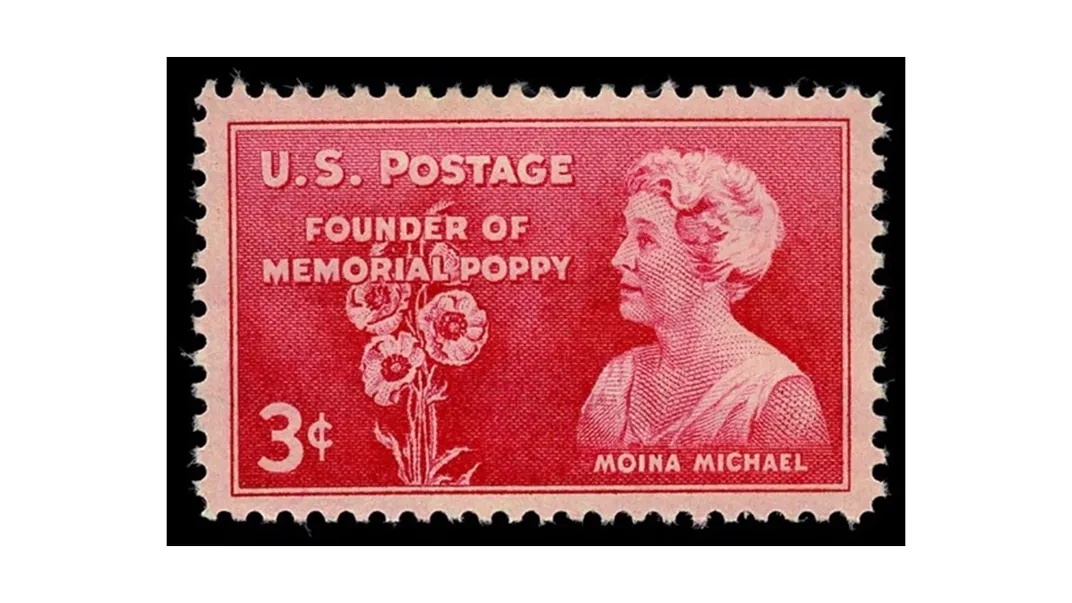A New Smithsonian Guide Honors the Service and Sacrifice of America’s Veterans
In collaboration with USA TODAY, “America’s Veterans: Honor, Service, and Sacrifice” is a tribute to veterans—covering Veterans Day history, personal stories, military branches and awards, and intergenerational activities to honor the legacy of the country’s veterans
:focal(640x363:641x364)/https://tf-cmsv2-smithsonianmag-media.s3.amazonaws.com/filer_public/a1/6c/a16c56e3-1587-4db2-ba79-a50cb2807bd5/november_2024_usat.jpeg)
Smithsonian educators, teaming up with USA TODAY, recently developed a special guide called, America’s Veterans: Honor, Service, and Sacrifice. This guide is all about honoring and recognizing the incredible contributions and sacrifices made by veterans throughout American history and today. It’s a heartfelt tribute to the impact veterans have had on our country, and it’s designed to help readers celebrate and better understand their service.
“To us in America, the reflections of Armistice Day will be filled with the solemn pride of heroism of those who died in the country’s service with gratitude for the victory…,” proclaimed President Woodrow Wilson on November 10, 1919. Veterans Day, which was once called Armistice Day, marked the end of World War I on November 11, 1919. It became an official holiday in the United States in 1938 and was renamed Veterans Day in 1954 to honor all veterans.
The America’s Veterans: Honor, Service, and Sacrifice guide shares important stories from the Smithsonian’s exhibitions, memorials, and collections. It highlights the significance of the iconic poppy flower as a symbol of remembrance and the subsequent inspired work of civilian Moina Michael to sell silk poppies to raise money for disabled veterans.

The guide explains who is considered a veteran and why people join the military. Readers will learn about the six branches of the military and their contributions to our country’s defense. The guide also helps delineate the difference between Veterans Day and Memorial Day and includes a timeline of important events related to Veterans Day. There are fun activities too, like designing postage stamps to honor veterans and conducting an oral history interview to preserve veterans’ stories. The guide highlights organizations and individuals who support veterans after their service.

The guide covers various military honors and awards, like the Congressional Gold Medal given to the 65th Infantry Regiment “The Borinqueneers” for their bravery during the Korean War, and the Nisei Congressional Gold Medal awarded to 18,000 Japanese American soldiers from World War II. It also showcases the National Defense Service Medal and the Cherokee Medal of Patriotism, among others. It suggests ways to celebrate Veterans Day and honor veterans and explores the importance of the flag.
/https://tf-cmsv2-smithsonianmag-media.s3.amazonaws.com/filer_public/e4/83/e483ae03-820e-4622-b197-f7b362dc38c3/usat2.png)
Notable figures, such as Senator Daniel Inouye and common soldiers in extraordinary circumstances, are spotlighted. The guide looks at the different paths veterans take after their service, such as holding public office or continuing to serve their communities, like Kevin KickingWoman (Blackfeet) did when he became a teacher after his service.
/https://tf-cmsv2-smithsonianmag-media.s3.amazonaws.com/filer_public/c9/0f/c90f6996-7702-4449-85be-3297b9def8bc/usat6.jpg)
Monuments and memorials, including the National Native American Veterans Memorial at the Smithsonian's National Museum of the American Indian in Washington, D.C., are highlighted in a self-guided tour, and there’s an activity prompting readers to create a veterans memorial tour in their own community.
/https://tf-cmsv2-smithsonianmag-media.s3.amazonaws.com/filer_public/6e/b2/6eb29627-4d94-4153-abaa-a1ba3e1c7315/usat3.png)
The guide also explores how veterans engage with the arts and culture, showcasing artworks and artists that pay tribute to veterans’ experiences. For example, it features Edson’s Flag by artist Marie Watt, a detailed portrayal of a dress that honors an artist’s grandfather Grandpa Blue Bird, the Harlem Hellfighters of World War I, and the artwork of war by World War I veteran Claggett Wilson, among others.
Finally, the guide shares personal stories from veterans, showcasing their courage and resilience. From Bee Falk Haydu and the WASP women military pilots of World War II to the actions of Dorie Miller and Jose Quintero who defied the odds during World War II and the Vietnam War, respectively, to Pfc. Romay Johnson Davis and the “Six Triple Eight” Central Postal Directory Battalion—the first and only all-female, all-African American unit to deploy overseas in World War II—to Mitchelene BigMan (Apsáalooke [Crow]/Hidatsa) and the Native American Women Warriors serving in Iraqi Freedom.
/https://tf-cmsv2-smithsonianmag-media.s3.amazonaws.com/filer_public/d6/00/d60025a3-aa33-48ac-879b-d83cdc26b790/usat4.png)
This guide offers a comprehensive and multi-faceted approach to learning about the important role veterans play in our society and how we can show our appreciation for their service and sacrifice. This Veterans Day, we encourage you to have a meaningful conversation with the veterans in your life about the guide and its contents. If you are a veteran, share your stories and experiences with your loved ones. And most importantly, thank you for your service.
Editor's Note: The "America's Veterans: Honor, Service, and Sacrifice" guide is now available for viewing and download, with additional resources available online via the Smithsonian Learning Lab.
